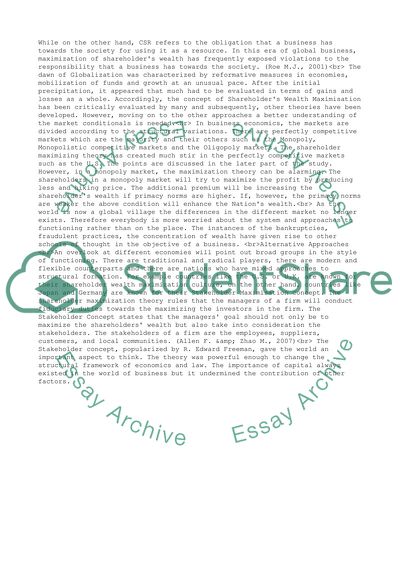Cite this document
(“Shareholder Wealth Maximisation Essay Example | Topics and Well Written Essays - 2500 words”, n.d.)
Retrieved from https://studentshare.org/business/1520395-shareholder-wealth-maximisation
Retrieved from https://studentshare.org/business/1520395-shareholder-wealth-maximisation
(Shareholder Wealth Maximisation Essay Example | Topics and Well Written Essays - 2500 Words)
https://studentshare.org/business/1520395-shareholder-wealth-maximisation.
https://studentshare.org/business/1520395-shareholder-wealth-maximisation.
“Shareholder Wealth Maximisation Essay Example | Topics and Well Written Essays - 2500 Words”, n.d. https://studentshare.org/business/1520395-shareholder-wealth-maximisation.


